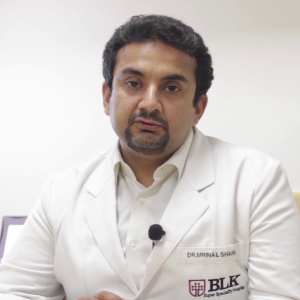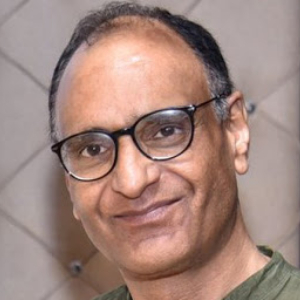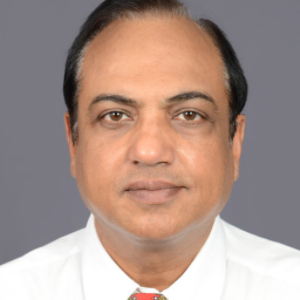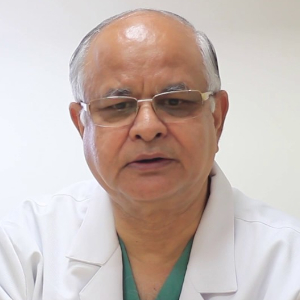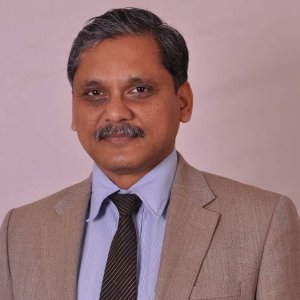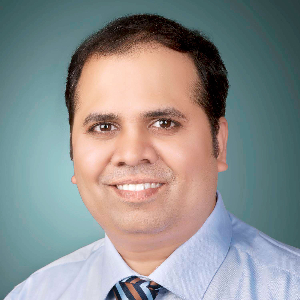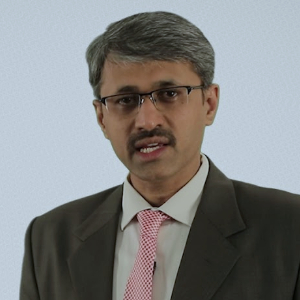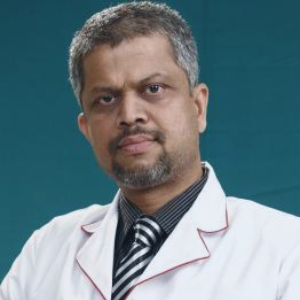Best Doctors in India for Alcoholic Hepatitis Treatment
- Orthopedic Surgeon, New Delhi, India
- Over 20 years’ experience
Profile Highlights:
- Dr. Mrinal Sharma is a highly renowned Orthopedic Surgeon and Joint Replacement Specialist with a specialization in Arthroplasty.
- Dr. Mrinal Sharma holds with him an experience of more than a decade and has achieved huge success with joint replacement procedures, especially of the knee, during his career.
- He is among the new generation of Orthopedic surgeons who use Computer Navigated techniques for performing knee and hip replacement surgeries.
- Orthopedic Surgeon, Mumbai, India
- Over 20 years’ experience
Profile Highlights:
- Dr. Murali Poduval is a well-known Orthopedic surgeon in Mumbai with a specialization in Joint Replacement surgeries.
- He holds an extensive experience of close to 2 decades in Orthopedics and Joint replacement surgery and is an expert in the management and treatment of deformity correction, arthroplasty, and complex trauma.
- He is highly skilled in performing all types of primary and revision surgeries on the hip, knee, and spine. His primary interest also includes hip arthroplasty for severe defects in children and adolescents.
- Cardiac Surgeon, Gurugram, India
- Over 30 years’ experience
Profile Highlights:
- Dr. Murtaza A Chishti is one of the most well-known and distinguished Cardio-Thoracic and Vascular surgeons in North India
- He has more than 3 decades of experience in the field of cardiac surgery with a specialization in heart and lung transplantation surgeries.
- He has performed more than 6000 cardiac procedures that include Total Arterial revascularization, aortic surgery, complex and re-operative coronary surgery, CABG, and several other cardiothoracic surgeries.
- Cardiac Surgeon, Mumbai, India
- Over 36 years’ experience
Profile Highlights:
- Dr. Nandkishore Kapadia is one of the leading Cardiothoracic and vascular surgeons in India excelling in heart and lung transplant surgeries.
- He has 36+ years of experience in the field during which he has performed over 10000 CABGs, 2000 heart valve repairs, and 800 minimally invasive cardiac surgeries.
- He has also performed more than 5000 open heart surgeries, 200 heart and lung transplant surgeries, and 150 VAD and ECMO implantation procedures.
- Surgical Oncologist, New Delhi, India
- Over 20 years’ experience
Profile Highlights:
- Dr. Pawan Gupta is a well-known Surgical Oncologist in India having more than 2 decades and has performed over 7000 onco-surgeries for head and neck, thoracic, breast, GI, and gynecological cancers.
- Dr. Pawan Gupta is highly trained in different types of cancer surgeries and received his training from the best Cancer centers including Tata Memorial Hospital and SMH Curie Cancer Center.
- Orthopedic Surgeon & Spine Surgeon, New Delhi, India
- Over 40 years’ experience
Profile Highlights:
- Dr. Pradeep Sharma is the Director of the BLK-Max Centre for Orthopedics, Joint Reconstruction, and Spine Surgery in Delhi.
- Dr. Pradeep Sharma has an experience of 40+ years in the field and is an expert in the treatment of both adult and pediatric patients.
- Dr. Pradeep Sharma runs arthroplasty Fellowships supported by Zimmer and Stryker and has trained and mentored young surgeons in Arthroplasty.
- Neurosurgeon & Spine Surgeon, Bengaluru, India
- Over 20 years’ experience
Profile Highlights:
- Dr. Prahraj S S is a leading Neurosurgeon who specializes in all types of neurological surgeries and has performed over 6000 neurosurgeries till date along with complex cranial and spine surgeries.
- He is one of the most renowned neurosurgeons in the country and has provided his services to some of the premier medical institutes in India such as NIMHANS where he performed a large number of spinal surgeries.
- Surgical Oncologist, Mumbai, India
- Over 10 years’ experience
Profile Highlights:
- Dr. Prashant Pawar is a reputed Head and Neck Onco-surgeon.
- He possesses 10+ years of experience in the field and is an expert in the treatment of benign and malignant tumors of the head and neck.
- Dr. Prashant Pawar’s primary expertise lies in Voice rehabilitation post Laryngectomy among other surgeries for cancers of the head and neck regions. He performs both open and endoscopic surgeries and is also an expert in laser surgery and minimally invasive procedures.
- Neurosurgeon & Spine Surgeon, Bengaluru, India
- Over 15 years’ experience
Profile Highlights:
- Dr. Praveen K S is a highly qualified neurosurgeon with over a decade of experience in handling all kinds of neurological diseases and disorders.
- He specializes in Pediatric Neurosurgery, Neuro-Oncology, Endoscopic neurosurgery, Aneurysms, and Neuro- Trauma and has performed over 4000 neurosurgeries in his career.
- Neurosurgeon & Spine Surgeon, Mumbai, India
- Over 20 years’ experience
Profile Highlights:
- Dr. Rahul Modgi is a highly established neuro and spine surgeon in Mumbai specializing in all types of brain and spine surgeries.
- Dr. Rahul Modgi’s name has been recorded in the Limca Book of Records in 2014 when he removed the heaviest iron rod from the brain of a 17-year-old patient. He has also performed various other risky surgeries for which he has greatly appreciated.
Best Hospitals in India for Alcoholic Hepatitis Treatment
ALCOHOLIC HEPATITIS
Alcoholic hepatitis is a liver infection, which is mainly caused by frequent, heavy use of alcohol. Fat can build up in the liver cells, which might lead to inflammation as well as scarring of the liver.
Alcoholic hepatitis might be mild or severe. A patient might even need a liver transplant if proper treatment is not provided, or if they don’t stop consumption of alcohol.
It is also notable that all heavy drinkers don’t develop this condition, and sometimes this condition even develops in people who drink moderately. However, if you are diagnosed with this condition, it is important for you to quit drinking alcohol. People who continue drinking alcohol might face a huge risk of serious liver damage as well as death.
Symptoms
Depending on the amount of damage to the liver, the symptoms can vary. If you are having a mild form of the disease, you might not even experience any symptoms at all. However, as the damage continues to grow, you might experience the following:
- Changes in appetite
- Dry mouth
- Weight loss
- Pain or swelling in the abdomen
- Jaundice, or yellowing of the skin or eyes
- Fever
- Nausea and vomiting
- Easy bleeding or bruising
- Changes in your mental state, including confusion
- Fatigue
The symptoms of this condition are similar to those caused by a few other health conditions. Therefore, if you develop any of these symptoms, it is best to get a proper diagnosis as well as begin treatment.
Causes & risk factors
Alcoholic hepatitis generally develops when the alcohol you drink causes damage to your liver. However, it is not clear why alcohol does this damages only to some heavy drinkers.
Few factors that are known to play a role in this condition include:
- The body’s process that breaks down alcohol produces some toxic chemicals
- These chemicals can trigger inflammation that can destroy the liver cells
- Thus, over time, scars replace healthy liver tissue, thus interfering with the function of the liver
- This irreversible scarring, which is also termed cirrhosis, is the final stage of alcoholic liver disease
If you have hepatitis C and continue to drink, even moderately, you are more likely to develop cirrhosis.
Some heavy drinkers are also malnourished because they don’t eat a proper balanced diet. Alcohol and its byproducts also prevent the body from absorbing nutrition properly. Lack of nutrition can contribute to liver cell damage.
Some other risk factors that can lead to this condition include:
- Your sex- Women are usually at a higher risk of developing alcoholic hepatitis since the way alcohol is processed in women is different.
- Binge drinking- Having over five drinks within two hours for men and four or more for women can increase the risk of alcoholic hepatitis.
- Obesity- Heavy drinkers who are overweight are also more likely to develop alcoholic hepatitis and to progress from that condition to cirrhosis.
- Race and ethnicity- Hispanic and Negroid people might be at higher risk of alcoholic hepatitis.
- Genetic factors- According to studies, there may be a genetic component in alcohol-induced liver disease. However, it is difficult to separate genetic and environmental factors.
Diagnosis
If you are showing symptoms of alcoholic hepatitis, your doctor will first inquire about your medical history and alcohol consumption. Next, he/she will perform a physical exam to see if you have an enlarged liver or spleen. They might also need a few more tests to confirm your diagnosis, such as:
- Complete blood count (CBC)
- Liver function test
- Ultrasound of the liver
- Abdominal CT scan
- Blood clotting tests
In some cases, a liver biopsy might also be needed to confirm the diagnosis of alcoholic hepatitis. A liver biopsy requires your doctor to remove a tissue sample from your liver, which is then tested in the lab. This method helps to show the severity and type of liver disease.
Treatment
Stopping alcohol consumption is the most important treatment for alcoholic hepatitis. There is no cure for this condition, but treatment can help in reducing or eliminating symptoms, or stopping its progression.
It is also important to note that scarring of the liver is permanent, but treatment can aim to restore as much function as possible.
Dietary changes
Medication
Liver transplant
The best hope of recovery is to be aware of the signs and symptoms as well as to reduce, manage, or if possible, completely stop consumption of alcohol.
Complications
Alcoholic hepatitis might lead to severe other complications such as:
- Enlarged veins (varices)- In this condition, blood that is unable to flow freely through the portal vein, can back up into other blood vessels in your esophagus or stomach.
- Hepatic encephalopathy- This condition can be caused by the buildup of toxins if your damaged liver is unable to remove all the toxins from your body. It involves confusion, drowsiness, and slurred speech.
- Ascites- Ascites is a condition in which the fluid that accumulates in the abdomen may get infected and thus, require treatment with antibiotics. Although this condition is not life-threatening, it can be a sign of advanced alcoholic hepatitis, or cirrhosis.
- Kidney failure- A damaged liver affects blood flow to the kidneys, thus resulting in kidney failure.
- Cirrhosis- The scarring of the liver might lead to liver failure.
Prevention
Alcoholic hepatitis might be prevented if you take the following steps:
- Drink alcohol in moderation, if at all- For healthy adults, moderate drinking means no more than one drink a day for women of all ages and men older than 65, and not over two drinks a day for men aged 65 and younger. However, if you prevent all alcohol, it is a certain way to prevent this condition.
- Check before mixing medications and alcohol- Ask your doctor if it’s safe to drink alcohol while you are taking medications. Consider reading the warning labels on over-the-counter medications as well. Don’t drink alcohol when you are taking medications that warn of complications when combined with alcohol.
- Protect yourself from hepatitis C- Hepatitis C is an infectious liver disease that is caused by a virus. If it is left untreated, it may lead to cirrhosis. If you are having hepatitis C and you consume alcohol, you’re generally more likely to develop cirrhosis than if you don’t drink.

